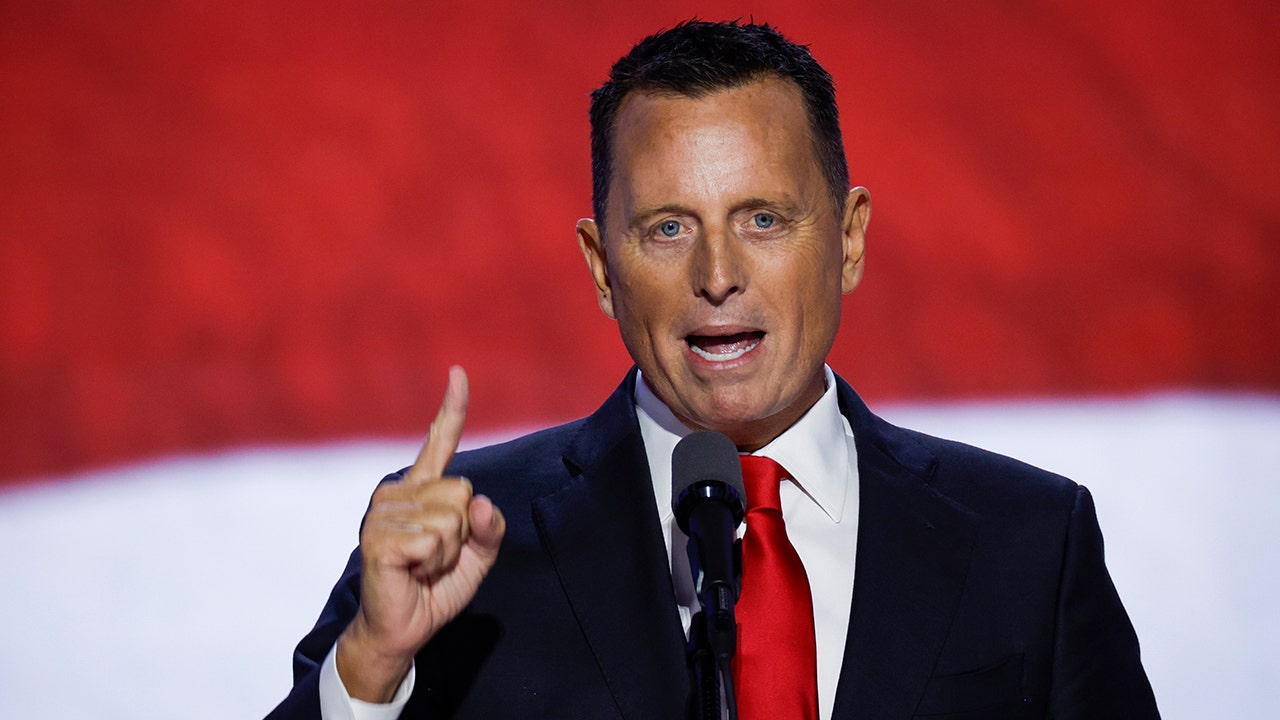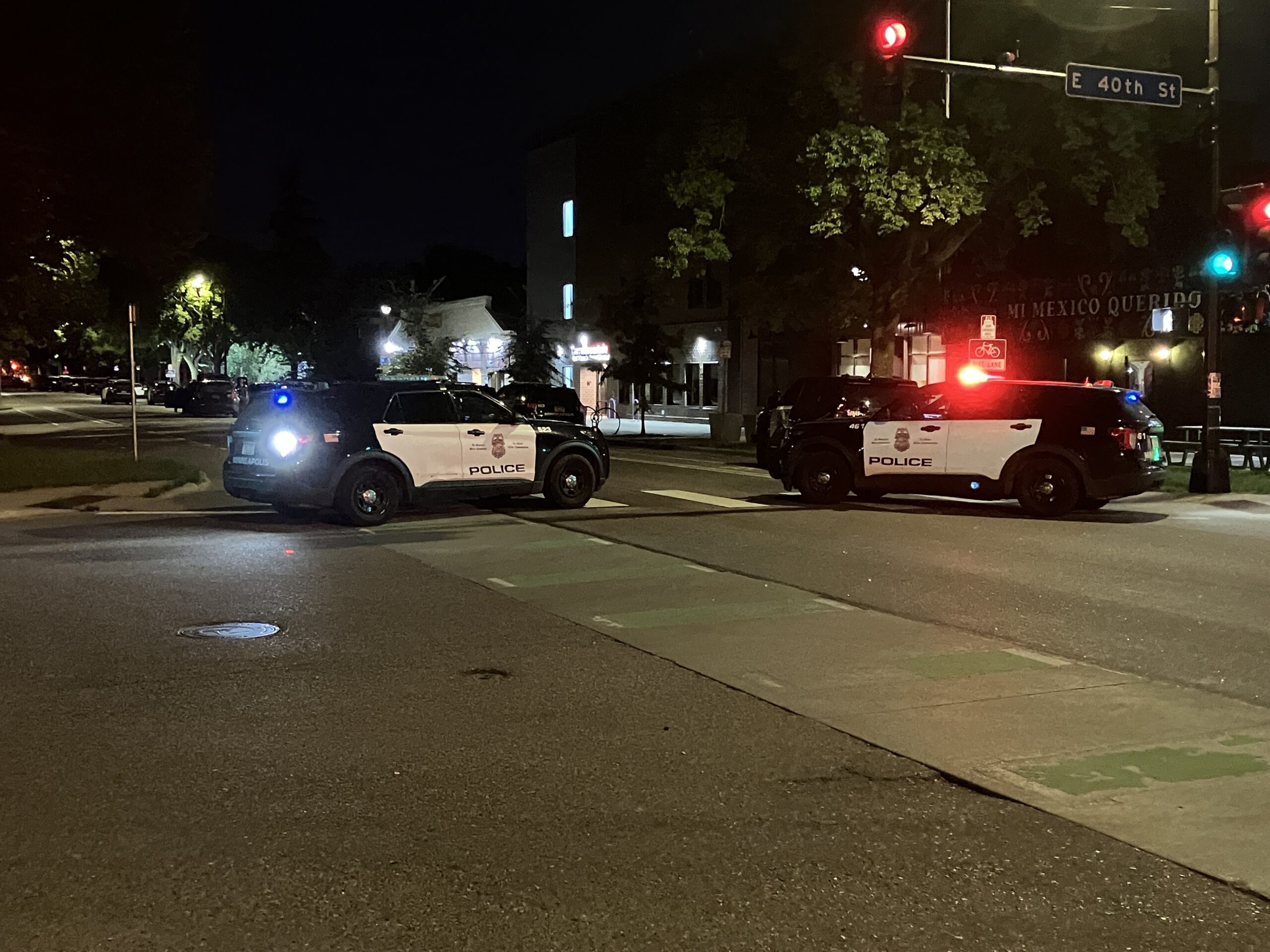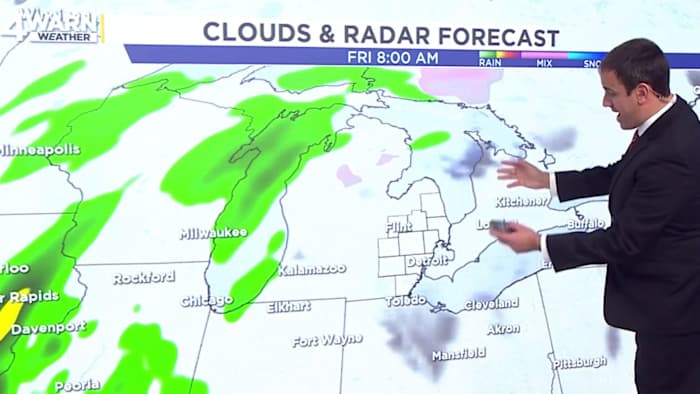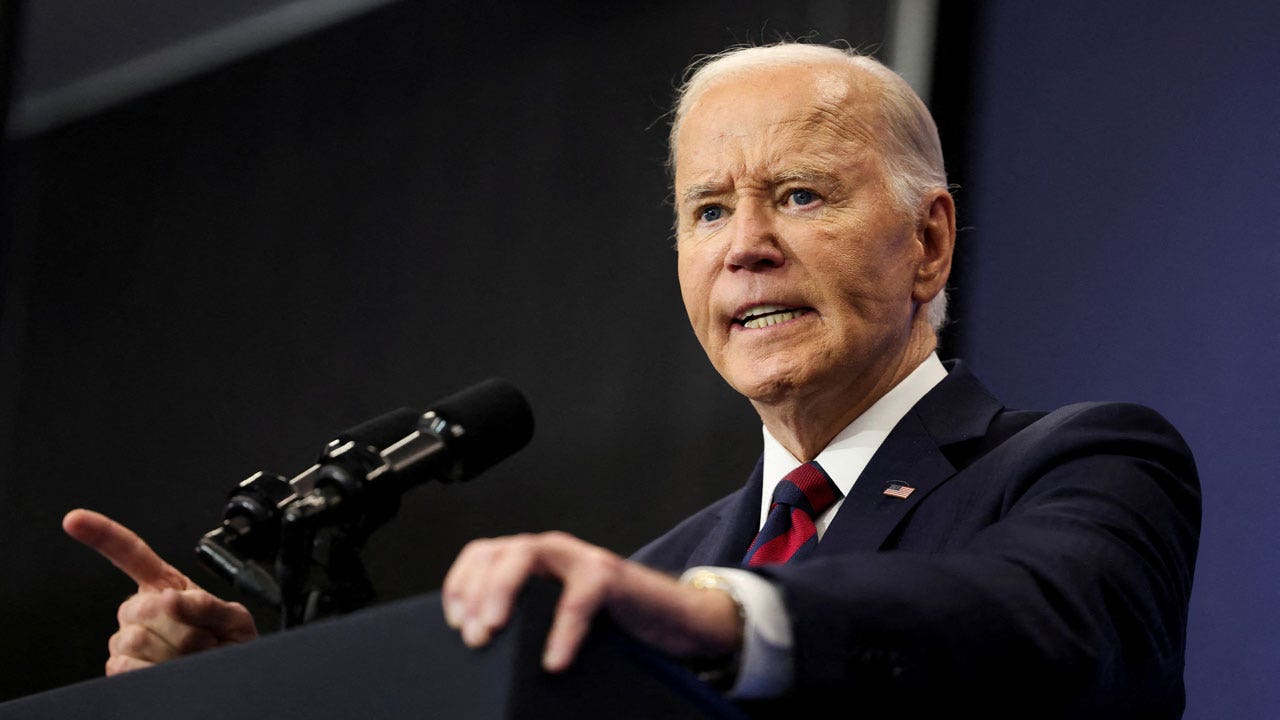Pennsylvania
Officials identify Pennsylvania State Police trooper killed in officer-involved shooting

MIFFLINTOWN, Pennsylvania (WPVI) — Officials have identified the people involved in a shooting that left one Pennsylvania State Police trooper dead and another seriously hurt on Saturday.
State police say 29-year-old Trooper Jacques Rougeau Jr. was shot and killed during the incident in Juniata County.
READ | 1 Pennsylvania State Police trooper dead, 1 seriously injured after officer-involved shooting
Lieutenant James Wagner, 45, was seriously injured in the shooting.
Wagner is currently listed in critical condition at an area hospital.
The incident began when officials say a man engaged with state troopers just after 11 a.m.
According to state police, the man arrived at Troop G, Lewistown station armed with a rifle and fired shots at patrol vehicles in the parking lot.
A wide manhunt for the shooter began that included helicopter reinforcement, officials say.
Officials identified the shooter as 38-year-old Brandon Stine of Thompsontown, Juniata County.
Wagner located Stine early that afternoon and they exchanged gunfire, police said. That’s when a shot from Stine’s gun struck and critically injured Wagner.
The shooter was located by Rougeau sometime later.
Troopers say Rougeau encountered Swine while driving through the county, at which point Swine shot the trooper through his car’s windshield and killed him.
The shooter made another escape in what police described as “a game of cat and mouse,” and he fled into a rural residential area in Walker Township, Juniata County.
Authorities chased Stine through a residential area and a parking lot, where they confronted him again. Stine started a shootout with police in the parking lot, which was occupied by patrons of a nearby store, police said.
“What I witnessed, and I will tell you in my many years with the Pennsylvania State Police and many serious situations, was one of the most intense, unbelievable gunfights I have ever witnessed,” said Lt. Colonel George Givens at a press conference. “Our troopers put themselves between those people and, and by force with their vehicles and by engaging him, forced him away from the business.”
Police cornered Stine when he became stuck against a row of trees on a nearby property, and he was shot and killed, Givens said.
“This is a tragedy for the Pennsylvania State Police,” said Colonel Christopher Paris, commissioner of the Pennsylvania State Police.
“We ask for your continued prayers for not only our Troopers but also their families,” he added.
Rougeau enlisted in the Pennsylvania State Police in 2020 and was transferred to Troop G in Lewistown in March of last year.
State police say he is the 104th member of the Pennsylvania State Police to die in the line of duty.
Pennsylvania Governor Josh Shapiro ordered flags in the commonwealth to be flown at half staff due to the trooper’s death.
The CNN Wire contributed to this report.

Pennsylvania
2 Western Pennsylvania men charged in murder-for-hire plot confession to pastor, police say

State police in Western Pennsylvania have charged two men in a murder-for-hire plot after one of the suspects allegedly confessed to his pastor.
NBC News affiliate WJAC reports David Vanatta, 49, and Colton Baird, 32, both of Elk County, were jailed for an alleged plot to kill Vanatta’s ex-wife.
An affidavit obtained by WJAC states Vanetta confessed to a pastor that he paid Baird $2,000 to kill his ex-wife. The pastor then reported the information to police.
Police say the ex-wife was never harmed.
Online court records show Vanatta and Baird are facing several charges, including criminal solicitation – criminal homicide, conspiracy to commit criminal homicide and attempted homicide. Both men are being held in the Elk County Prison without bail.
Download the FREE WPXI News app for breaking news alerts.
Follow Channel 11 News on Facebook and Twitter. | Watch WPXI NOW
Pennsylvania
How the Lehigh Valley helped Pennsylvania’s outdoor recreation economy grow to $19B

Forget elves: Patrick Brogan and his team at ArtsQuest are the reason some of country singer/songwriter Megan Moroney’s fans will awake on Christmas to find tickets waiting for them to her show July 31 in Bethlehem.
Planning the lineup featuring headliners like Moroney at ArtsQuest’s Musikfest each summer, plus other draws like its Levitt Pavilion outdoor concert series, is a year-round activity.
“We put out offers for the following year’s Musikfest before that year’s Musikfest even takes place,” said Brogan, chief programming officer for the nonprofit ArtsQuest. “By the Fourth of July I have offers out for the following year’s Musikfest already and we’re in active conversations.”
Nationally, festivals, sporting events and concerts are a big business, contributing $21.8 billion in 2023 toward an outdoor recreation economy that rose 9% to $639.5 billion compared to 2022, according to new data from the U.S. Bureau of Economic Analysis.
Venues like Musikfest helped push ArtsQuest’s contribution to the regional economy to $132.7 million in 2023, based on Americans for the Arts funding formulas. And those summer nights shows are part of Pennsylvania’s outdoor recreation industry that contributed nearly $19 billion to the state’s economy in 2023, up 10% from 2022.
The Keystone State boasts the eighth-largest outdoor recreation economy in the country.
The value of outdoor recreation added made up 2.3% of the gross domestic product for the United States in 2023, in current dollars, and 1.9% of Pennsylvania’s GDP. It generates employment totaling 168,322 jobs in Pennsylvania in 2023, or 2.7% of the statewide workforce, and compensation totaling $8.7 billion, for 1.7% of payroll. Across all 50 states and the District of Columbia, outdoor recreation employment increased in 49 states and the District of Columbia in 2023, topped by 7.5% growth in Alaska; only Indiana saw a drop in outdoor recreation employment, of 4.8%, the federal Bureau of Economic Analysis says.
The Bureau of Economic Analysis, part of the U.S. Department of Commerce, puts out its outdoor recreation economy report each fall. Nationally, the outdoor economy is outpacing other economic growth, the statistics show: Adjusted for inflation, the GDP for the outdoor recreation economy increased 3.6% in 2023, compared with a 2.9% increase for the overall U.S. economy.
What goes into the outdoor recreation economy?
It encompasses core outdoor recreation activities like bicycling; boating and recreation; climbing, hiking and tent camping; equestrian; hunting, shooting and trapping; motorcycling and ATVing; recreational flying; RVing; skiing, snowboarding and other snow activities (including snowmobiling); and apparel and accessories. Also included are outdoor recreation industries like amusement parks and water parks; festivals, sporting events and concerts; field sports; game areas (includes golfing and tennis); guided tours and travel; and productive activities such as gardening, plus support for outdoor recreation under headings that include construction; local trips and travel; food and beverages; lodging; shopping and souvenirs; transportation and government spending.
In the Lehigh Valley, outdoor recreation helps to drive the regional, state and national economy 12 months a year.
“Tickets make great gifts,” ArtsQuest’s Brogan said, with the Musikfest 2025 headliners announced before Christmas 2024 that also include Riley Green, The Avett Brothers, Darius Rucker, Nelly and Jordan Davis.
Patrick Brogan, chief programming officer for Bethlehem-based ArtsQuest, says planning shows and booking acts for summer concerts like those at Musikfest is a year-round activity.Courtesy ArtsQuest
Regionally, it contributes to a GDP that grew to a record $55.7 billion in 2023, led by manufacturing, according to a December report from the Lehigh Valley Economic Development Corp.
Blue Mountain Resort outside Palmerton, for example, employs around 1,200 people during its peak season in winter when it offers 40 ski trails, five terrain parks, 16 lifts and up to 46 tubing lanes on the north face of the Kittatinny Ridge boasting the highest vertical drop — 1,082 feet — of any Pennsylvania ski area. In the warmer months, Blue Mountain has diversified to offer camping, a bike park and adventure park, along with dining options like the Slopeside Pub & Grill that is open year-round and sports panoramic views of the Pocono Mountains.
Dorney Park & Wildwater Kingdom in South Whitehall Township is part of an amusement and water parks industry worth $515 million in Pennsylvania and over $19 billion nationally. It’s closed to the public for the winter, but not dormant. Management in December announced winter maintenance season was in full swing, with ride inspections for Dorney Park signature attractions like Iron Menace, Steel Force and more; facility upgrades that include refreshing guest services, dining areas, pathways and restrooms; and other enhancements, such as the removal of two aging slide structures and the reimagining of several guest areas at Wildwater Kingdom.

Musik Express at Dorney Park & Wildwater Kingdom in South Whitehall Township is stripped for inspections and cleaning during fall 2024 as part of off-season maintenance.Courtesy Dorney Park & Wildwater Kingdom
The growth in Pennsylvania’s outdoor recreation economy comes as the state Department of Conservation and Natural Resources is launching its Elevate campaign. Announced during an event in October in Easton, the idea is to work with the businesses that make up Pennsylvania’s outdoor recreation industry to help them grow even more.
“My administration is committed to supporting and growing the outdoor recreation industry, which strengthens local economies, creates jobs, and enhances the quality of life for Pennsylvanians and visitors alike,” Gov. Josh Shapiro said in a news release on the federal economic data released in November. “By investing in outdoor recreation, we’re not just creating economic opportunity but also celebrating the natural beauty that makes Pennsylvania so unique. We will continue working to make the Commonwealth a national leader, where millions of visitors and residents can go to spend time outside with the people they love.”
Our journalism needs your support. Please subscribe today to lehighvalleylive.com.
Kurt Bresswein may be reached at kbresswein@lehighvalleylive.com.
Pennsylvania
Small plane makes emergency landing on Pennsylvania highway

-

 Business1 week ago
Business1 week agoFreddie Freeman's World Series walk-off grand slam baseball sells at auction for $1.56 million
-
/cdn.vox-cdn.com/uploads/chorus_asset/file/23951353/STK043_VRG_Illo_N_Barclay_3_Meta.jpg)
/cdn.vox-cdn.com/uploads/chorus_asset/file/23951353/STK043_VRG_Illo_N_Barclay_3_Meta.jpg) Technology1 week ago
Technology1 week agoMeta’s Instagram boss: who posted something matters more in the AI age
-
/cdn.vox-cdn.com/uploads/chorus_asset/file/24924653/236780_Google_AntiTrust_Trial_Custom_Art_CVirginia__0003_1.png)
/cdn.vox-cdn.com/uploads/chorus_asset/file/24924653/236780_Google_AntiTrust_Trial_Custom_Art_CVirginia__0003_1.png) Technology4 days ago
Technology4 days agoGoogle’s counteroffer to the government trying to break it up is unbundling Android apps
-
News1 week ago
East’s wintry mix could make travel dicey. And yes, that was a tornado in Calif.
-

 News5 days ago
News5 days agoNovo Nordisk shares tumble as weight-loss drug trial data disappoints
-

 Politics5 days ago
Politics5 days agoIllegal immigrant sexually abused child in the U.S. after being removed from the country five times
-

 Entertainment5 days ago
Entertainment5 days ago'It's a little holiday gift': Inside the Weeknd's free Santa Monica show for his biggest fans
-

 Politics1 week ago
Politics1 week agoTrump taps Richard Grenell as presidential envoy for special missions, Edward S. Walsh as Ireland ambassador




















